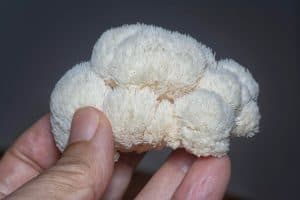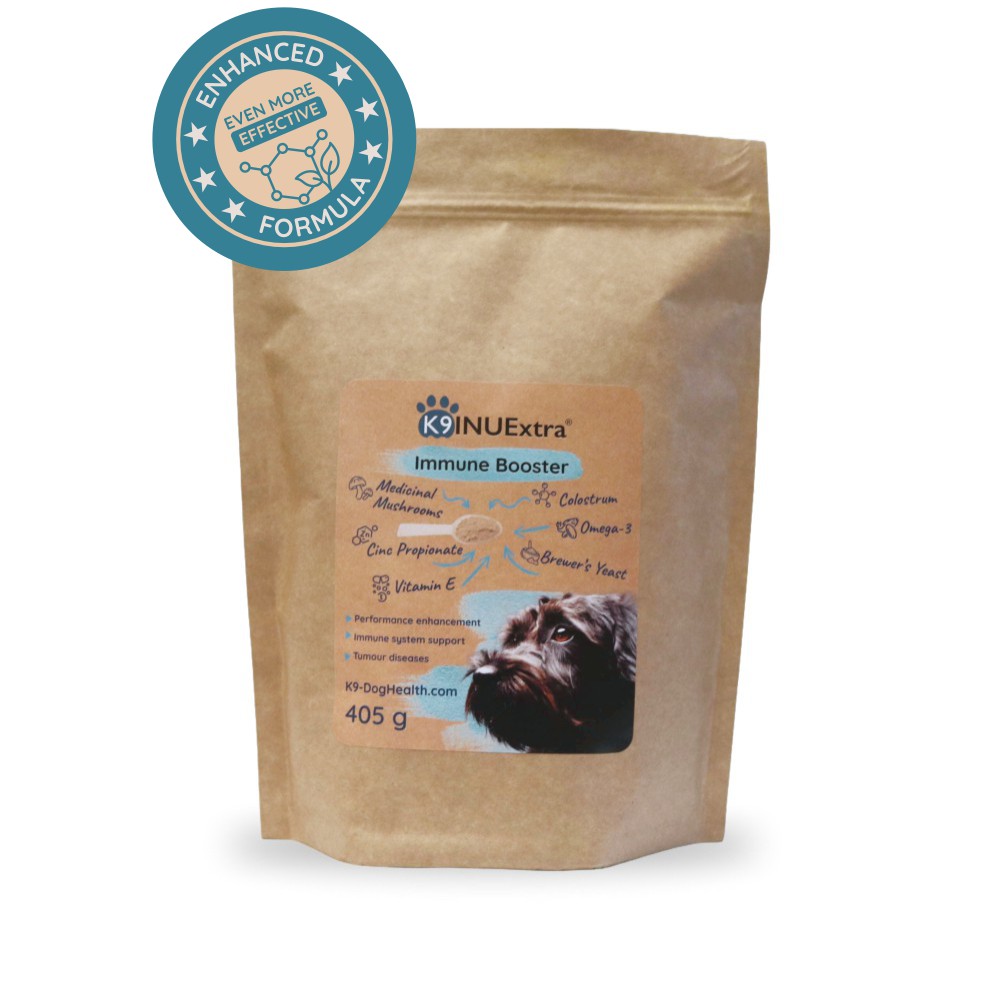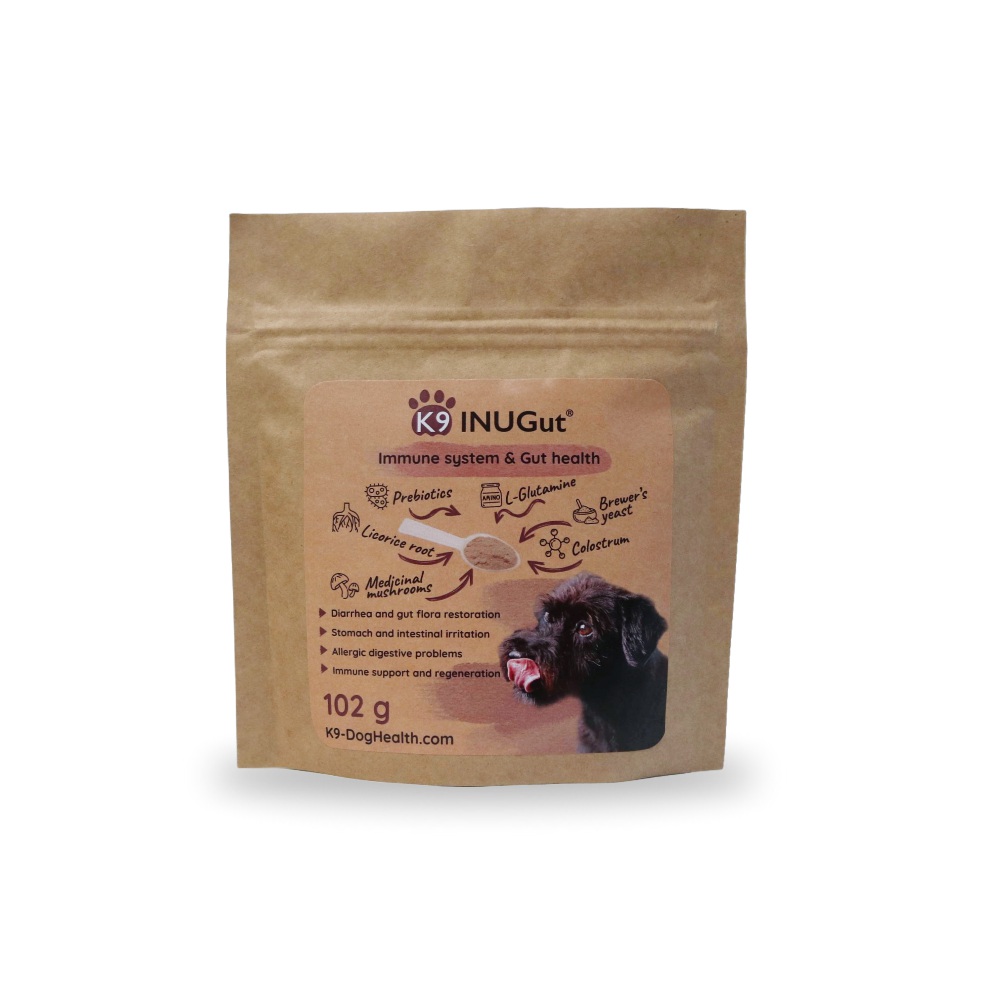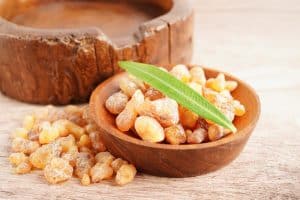Lion’s mane (Hericium erinaceus) – How it can help your dog
The lion’s mane mushroom (Hericium erinaceus) is one of the most fascinating medicinal mushrooms for dogs, increasingly recognized in recent years for its role in supporting canine health. But what exactly does it do, and what does the science say?
What is lion’s mane?
Lion’s mane is a distinctive white, shaggy mushroom that has been traditionally used in China and Japan to ease neurological disorders, memory problems, and digestive issues. Because of its shape, its English name comes from its resemblance to a lion’s mane. Over the years, modern studies have also shown that the mushroom’s bioactive compounds (erinacines, hericenones, β-glucans) not only stimulate nerve cell regeneration but also have powerful antioxidant effects. As a result, Hericium erinaceus has become one of the most researched functional mushrooms for both humans and dogs.
Why lion’s mane is remarkable for dogs

1. Gut flora and digestive support
In a 2022 metagenomic study on elderly (11-year-old) dogs, researchers found that daily supplementation with 0.8 g/kg body weight of lion’s mane for 16 weeks significantly improved gut microbiome balance. As a result, the proportion of beneficial Bacteroidetes increased, while the presence of Firmicutes decreased. Therefore, these findings suggest that Hericium erinaceus may help maintain both digestive and immune balance in senior dogs over time.
2. Nervous system and cognitive support
One of the most remarkable effects of Hericium erinaceus is its ability to support nerve cell regeneration. In particular, erinacines and hericenones stimulate the production of nerve growth factor (NGF), which plays a key role in restoring neurons and consequently improving memory function. For this reason, in dogs it may be especially valuable for preventing age-related cognitive decline, often referred to as “dog Alzheimer’s.”
-


K9 INUExtra®
- Premium immune support with medicinal mushrooms and colostrum
- Anti-inflammatory support with curcumin, omega-3 and BioPerine
- Stronger gut flora and improved digestion with brewer’s yeast and targeted prebiotics
- Antioxidant cellular protection with vitamin E, zinc and natural active compounds
€64,93 (ex.VAT)
3. Antioxidant and anti-inflammatory effects
Lion’s mane mushrooms have strong antioxidant activity. They reduce oxidative stress, lower levels of inflammatory cytokines (such as TNF-α and IL-6), and may help alleviate joint and nerve inflammation.
4. Immune system balance
The β-glucans in lion’s mane can stimulate macrophages and natural killer cells, resulting in a stronger immune response. It may be particularly helpful for dogs with weakened immune systems, those recovering from illness, or senior dogs.
Dosage and usage recommendations
Lion’s mane supplements are available in different forms – powders, capsules, or liquid extracts. The exact dosage depends on the concentration of active ingredients and your dog’s weight, so it’s best to consult your veterinarian. As a general guideline, small dogs may need only a few hundred milligrams daily, while medium and large breeds can take 1–2 grams per day mixed with food.
It’s important to choose extracts made from the fruiting body, as these contain higher levels of hericenones and erinacines than mycelium-based products.
Safety and quality considerations
Lion’s mane is generally safe for dogs, but like any natural supplement, gradual introduction and high product quality are key. Some dogs may experience mild digestive upset during the first days, so it’s best to start with smaller doses. While large-scale, long-term studies are still limited, current evidence suggests that H. erinaceus is well tolerated (NIH, 2023).
- Only use products from tested, verified sources.
- Avoid cheap “mushroom blends” or mycelium-based extracts.
- If your dog takes medication, consult your vet, as lion’s mane’s immune-modulating effects may interact with certain treatments.
The future of research – What this means for dog owners
Lion’s mane is one of the most promising natural compounds supporting the nervous, digestive, and immune systems in dogs. While research is ongoing, existing findings are already encouraging – especially in improving cognitive function in aging dogs and restoring gut microbiome balance.
Dog owners who have incorporated Hericium erinaceus into their pet’s daily routine often report better mood, increased alertness, and calmer behavior. Because it is natural, well-tolerated, and rich in antioxidants, lion’s mane can gently support overall regeneration – especially in older or more sensitive dogs. If you’re looking for a natural way to strengthen your dog’s nervous and immune systems, the Hericium erinaceus medicinal mushroom can be an excellent starting point.
Related medicinal mushrooms for dogs – Natural ways to support health
Lion’s mane is just one of several powerful medicinal mushrooms that can enhance your dog’s immune, neurological, and overall vitality. If you’d like to explore how other species can help, check out our related articles:
- Reishi (Ganoderma lucidum) mushroom for dogs – natural immune and liver support
- Turkey tail (Trametes versicolor) mushroom for dogs – support for cancer and recovery
- Cordyceps – an energizing mushroom that supports respiratory health
- Agaricus blazei Murill – immune-modulating and anti-inflammatory properties
- Shiitake (Lentinula edodes) mushroom for dogs – cardiovascular protection and antioxidant support
- Maitake (Grifola frondosa) mushroom for dogs – blood sugar and immune system support
These functional mushrooms contain various bioactive compounds – such as β-glucans, triterpenes, and polysaccharides – that strengthen the body’s natural defenses, reduce inflammation, and support cellular regeneration. A well-chosen combination can further enhance your dog’s vitality and well-being.
Summary
Lion’s mane (Hericium erinaceus) is a natural, scientifically backed medicinal mushroom supplement for dogs that can help support the neurological, digestive, and immune balance of senior or sensitive dogs. While it’s not a miracle cure, when used at the right dosage and from a high-quality extract, it can be an important part of holistic canine care.
Learn more about how medicinal mushrooms can naturally support your dog’s brain and digestion – explore our articles and recommended products to start safely today.
Frequently asked questions about lion’s mane for dogs
❓ What is lion’s mane good for in dogs?
Lion’s mane (Hericium erinaceus) primarily supports the nervous system, digestion, and immune function. It may help slow age-related cognitive decline, improve gut microbiome balance, and promote overall vitality.
❓ Is lion’s mane safe for dogs?
Yes, lion’s mane is a natural and generally well-tolerated medicinal mushroom supplement for dogs. Always choose lab-tested, pure products and adjust dosage according to your dog’s weight. If your dog is on medication, consult your vet before use.
❓ How long does it take for lion’s mane to work?
The effects develop gradually. Most dogs show better mood, increased alertness, and more balanced digestion after 2–4 weeks of consistent use. Long-term effects, such as neurological support, may take several weeks of regular supplementation.
❓ Can lion’s mane be combined with other medicinal mushrooms?
Yes. Lion’s mane works well alongside other medicinal mushrooms such as reishi, turkey tail, or cordyceps. Their compounds can work synergistically to enhance your dog’s immune system and overall recovery.
❓ Does lion’s mane have any side effects?
In rare cases, it may cause mild digestive issues such as bloating or soft stool during the first few days. These symptoms usually disappear quickly, especially when increasing the dose gradually. High-quality lion’s mane extracts are considered safe for dogs.
Important:
This article is for informational purposes only and is not a substitute for veterinary examination or treatment. Always consult your veterinarian for an accurate diagnosis and appropriate therapy.
References:
- Lee, S. et al. (2022). Gut microbiota profiling in aged dogs after feeding pet food with Hericium erinaceus. PMC9574611.
- PSXI-7 (2022). Effects of Hericium erinaceus on health of aged dogs. J. Anim. Sci. 100(S3):273–274.
- Kim, S.-P. et al. (2023). Hericium erinaceus promotes anti-inflammatory effects and motor coordination. Int. J. Mol. Sci. 24(7):6089.
- Kawagishi, H. et al. (2023). Neuroregenerative potential of Hericium erinaceus. PMC10218917.
- NIH (2023). Hericium erinaceus – Safety Review.



